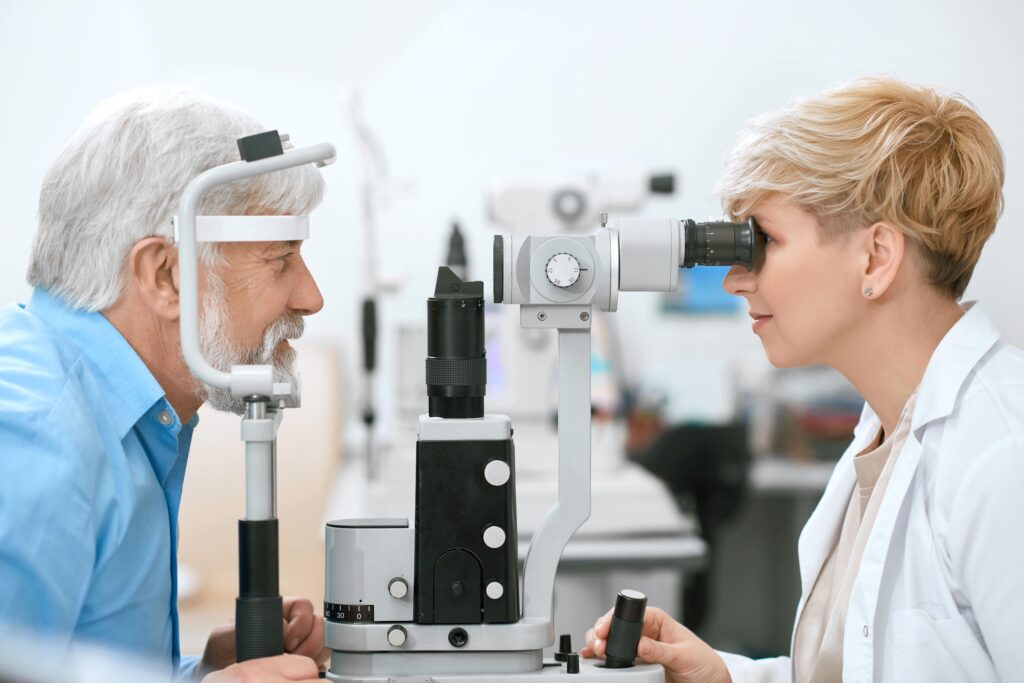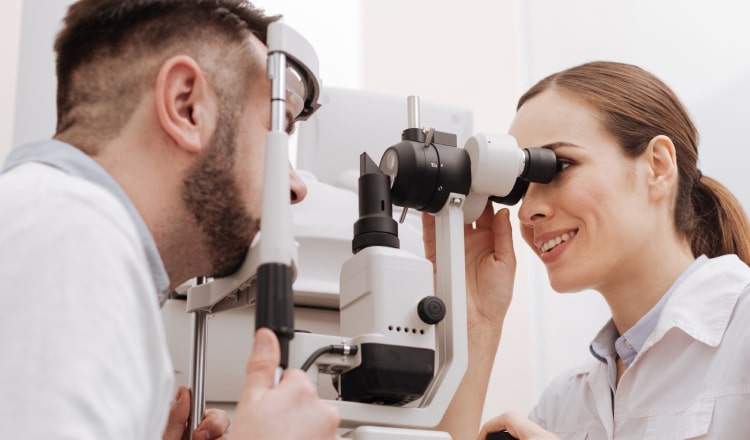Regular eye exams are essential to ensure the continuing health of your eyes, as well as making sure your vision is the best it can be.
Why eye exams are important
Even if you think your sight is fine, it’s important to have your eyes checked as there are many eye conditions and diseases that don’t show obvious symptoms in the early stages. It’s best to come in for regular eye exams, so we can check that everything is alright. If we do spot the early signs of a potential problem, you have a better chance of successful treatment before irreversible damage can be done.
What to expect
Our standard eye exam usually takes around 40 minutes, with our enhanced eye exam taking about 55 minutes. We use the latest equipment and technology to do a thorough examination of your eyes, checking for signs of a wide range of common eye conditions. Some of the tests we carry out may include:
- tonometry, testing the pressure inside your eyes to check for risk of glaucoma
- visual field test, if required, to measure your peripheral and all-round vision
- Ishihara test, if required, to check your colour vision, something that is important for some professions such as electricians
- visual acuity, where you read the letters on the chart to check if you need glasses.
Every patient is treated as an individual and the eye exam will be tailored to your requirements after discussing your current health and family history of eye conditions.
OCT Scan
If you upgrade to our enhanced eye exam (subject to an additional fee for NHS patients), you will also have an OCT scan. This advanced 3D scan gives us an in-depth view of the layers of the retina at the back of your eye. This enables the optometrist to check for tiny changes that could be a sign of sight-threatening conditions including age-related macular degeneration (AMD), glaucoma and diabetic retinopathy.
How often you should have eye exams
For most people, it is recommended that you have your eyes checked every 2 years. If you have or are at risk of certain conditions such as glaucoma or diabetes, the optometrist may recommend more regular check-ups.
NHS eye tests
We offer both NHS and private eye examinations. You may be eligible for a free NHS eye test if you are under 16 (or under 19 and in full-time education, over 60 or have been diagnosed with diabetes or glaucoma. You may also qualify if you are in receipt of Universal Credit or other income-related benefits.
Book your eye exam
If it’s been over 2 years since your last eye exam or you have noticed a change in your vision, contact us now to book an appointment.




